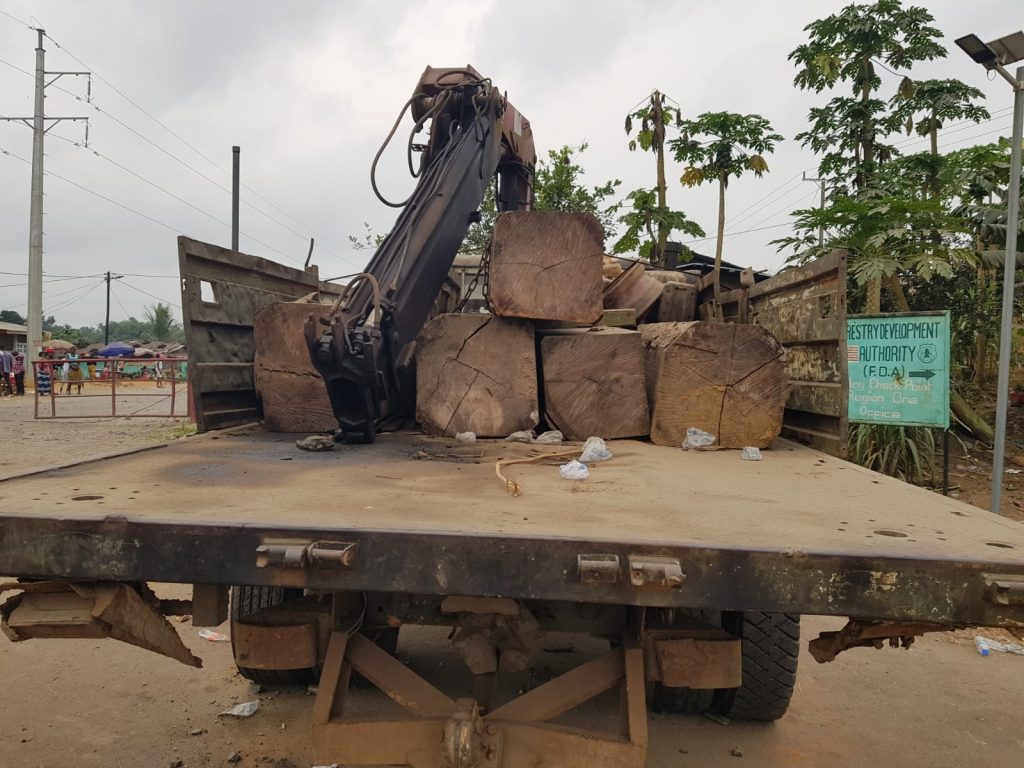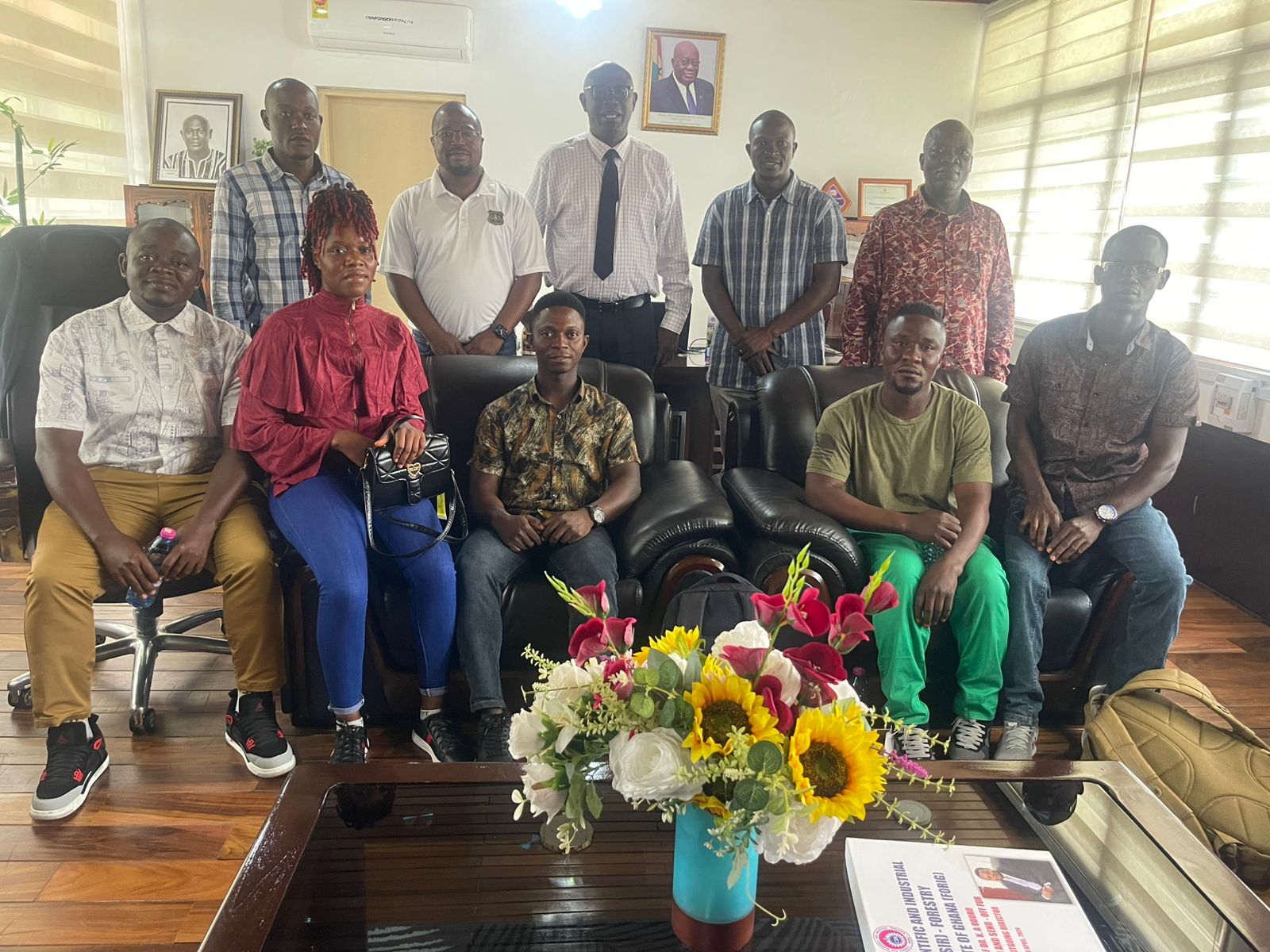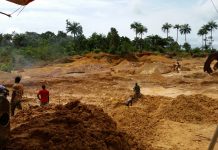Top: Participants of USFS’ timber identification workshop at CSIR-FORIG in Kumasi, Ghana. Picture credit: United States Forest Service
By James Harding Giahyue
MONROVIA – The United States Forest Service (USFS) has sponsored the training of seven Liberian foresters in identifying timber species using science-based technology through smartphones as part of the institution’s commitment to supporting Liberia in combating illegal timber harvesting and trading.
Drawn from the Forestry Development Authority (FDA), the University of Liberia and the Forestry Training Institute (FTI), participants acquired skills to identify various commercial timber species with the Agritix Xylorix mobile app. The technology is used worldwide for timber tracking and networking.
“As part of the response to address illegal timber trafficking in Liberia, the US Forest Service is providing technical and logistical support to strengthen the capacity of in-country stakeholders, including government ministries, agencies and civil society organizations to achieve Liberia’s policy objectives,” said Dr Benedictus Freeman, USFS Liberia’s Country Coordinator.
Illegal timber trafficking has been on the rise for several years in Liberia, with traffickers exploiting the industry’s capacity gaps. “Kpokolo,” the newest form, involves traffickers shaping timber into blocks and smuggling them through containers, robbing communities and the Liberian government of revenue.

The workshop’s participants acquired skillsets in wood anatomy, imaging, and using the Agritix Xylorix platforms to review timber’s macroscopic features.
Participants also learned how to apply national and international laws and regulations in combating illegal timber trafficking. The Forestry Research Institute of Ghana conducted the training From October 7-11 in Kumasi, Ghana’s Ashanti Region.
“A lot was achieved in wood anatomy,” said Moses Wenyanpulu of the FDA’s Research and Development Department.
“Like every human, every wood species has a unique and distinct fingerprint called anatomical features found within the wood structure. Understanding these features are very critical to properly identifying timber or lumber,” Wenyanpulu added.
USFS has been active in Liberia since 2003, alongside the USAID on several projects.
Apart from its anti-timber trafficking project, it has helped develop FTI’s curriculum, provided teaching assistance to the institute, and supported students’ programs. USFS also supports the ecotourism development of the East Nimba Nature Reserve and the Lake Piso Multiple Use Reserve.





Facebook Comments